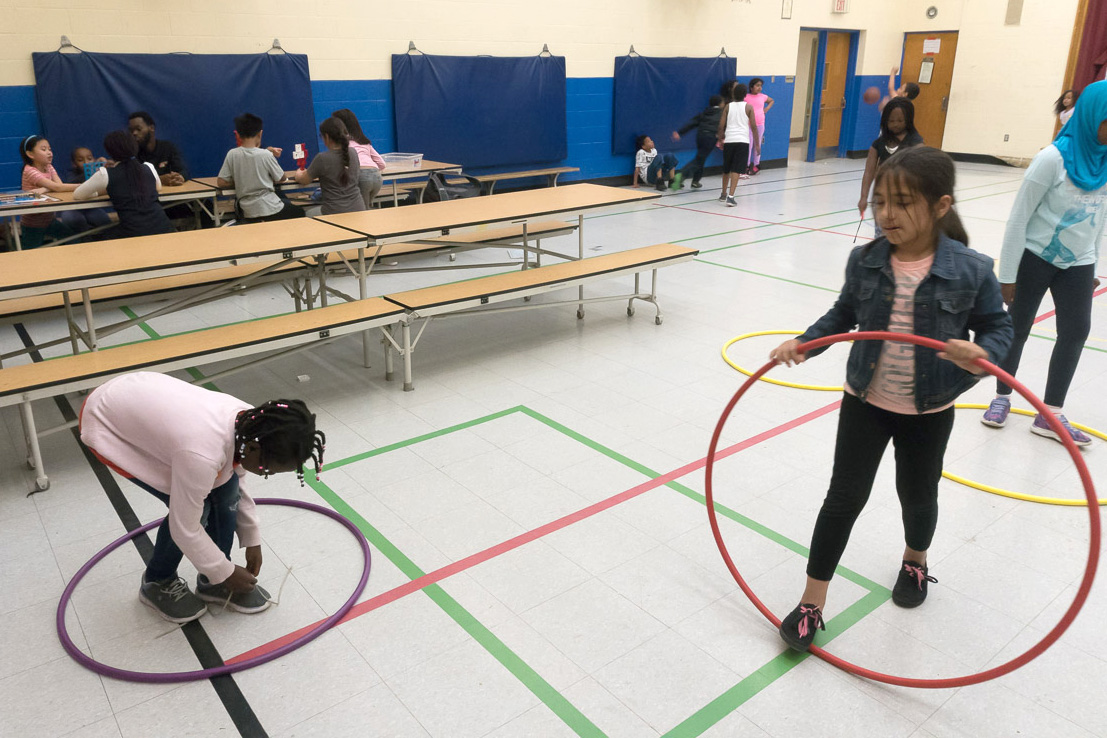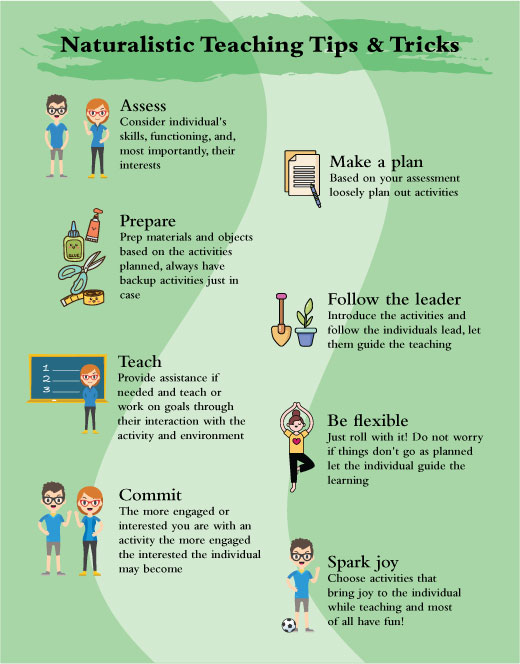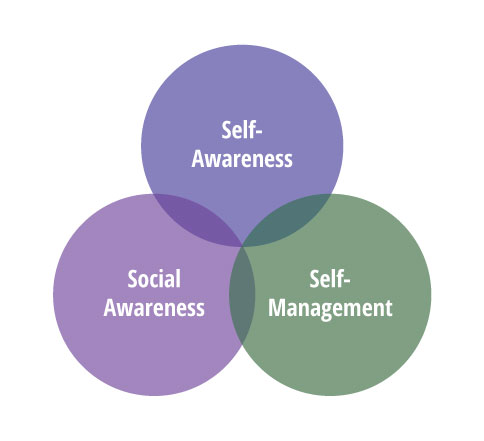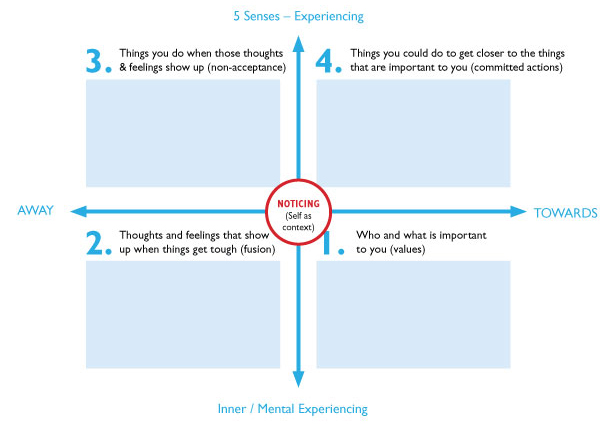
Personal space is all about how close you can come to people in different situations without making them feel uncomfortable. The concept of personal space can be different, depending on your background and culture. Now, more than ever, understanding safe public health definitions of personal space is important.
It’s helpful to nurture children’s understanding of space and how it relates to personal and safe space. Play-based games and activities are a great way to help children learn in ways that are motivating and interesting. This can happen throughout the day during planned activities, such as group or circle time or spontaneously, such as when out on a walk.
When planning, consider the following:
- Help children understand the reason that personal space is needed through discussion, pictures and stories. Children learn in different ways and will need pictures, written words and language to help them understand.
- Explain the importance of personal space, where our own personal space is and how this can be the same or different for other people.
- Explain the concept of safe personal distance.
- Give examples of personal space (e.g., “When we are together in a group I like to sit back a little to make sure my arms and legs are not touching anyone else, that’s how I respect your personal space.”) You can use this as an opportunity to talk about 6 foot physical distancing.
- Pair the activities with concrete objects and symbols, such as hula hoops, stickers or bright tape to show children where to sit or stand.
Examples of Games and Activities
Space Bubble
Materials: 1 hula hoop per child, open space
Objective: This activity gives children an opportunity to move throughout the room/area without touching others while using an object (hula hoop) to help them understand the concept of personal space.
Instructions:
- Ask each child to choose a hula hoop.
- Using masking tape and a marker, label each hula hoop with the child’s name. This way you can use the same hula hoop for a variety of activities.
- Ask the children to find a space in the room and place the hula hoop on the ground. Jump into the middle of your own hoop and ask the children to jump into their hoop.
- Tell the children that they are going to transform this hula hoop into our own personal space bubble. With the children, transform the hula hoop by lifting it up waist high and slowly stepping one foot forward, backwards and jumping up and down while remaining in the same spot.
- Explain how it is important to keep the hula hoop from touching others and to try not to bump into another hula hoop when you move through the room as this could pop your bubble.
- Before you start moving around the room, decide as a group, what happens if my bubble pops. How can we fix the bubble to help that person rejoin the game?
- Use music to enhance the experience. When the music is ‘on,’ they can move freely and stop moving when the music is off.
Six Foot Freeze Game
Materials: one hula hoop per child, a six foot length of string or rope
Objective: This activity gives children an opportunity to move throughout the room/area without touching others while using an object (hula hoop) to help them understand the concept of personal space.
Instructions:
- Place hula hoops around the room, 6 feet apart.
- Explain to the children that, when you call out “unfreeze” they may walk around the room and keep six feet apart, outside of the hoops. When you call out “Six Foot Freeze” they need to find a hoop, stand inside and not move.
- Have the children find a hoop and ‘freeze’ like a statue in a hoop, one child per hoop.
- Call out “Unfreeze!” The children slowly start moving around the room, making sure not to bump into any other hula hoops or objects and keeping six feet apart.
- Call out “Six Foot Freeze!” All children need to find a hoop.
- Repeat this several times.
- Once the children understand the game, remove the hoops and have them move around the room keeping six feet apart.
- Call out “Six Foot Freeze!” All children need to freeze on the spot.
- Use a six-foot string to measure the distance between one child and another.
- If anyone froze within 6 feet of another person, they become a “frozen statue” and cannot move.
- Repeat these steps one or two more times.
- Call out “unfreeze everyone” to start the game again.
Variations: Have the children pretend to be certain animals when moving around and coordinate with music to match the themes. For example, have the children pretend to be butterflies, bunnies or cats. Ask the children how they want to move around the room and follow their lead. You can also take this activity outside and add more imagination by flying through space while trying not to bump into any meteors.
Airplane Arms
Materials: An open area/space
Objective: This activity gives the children an opportunity to move throughout the room/area without touching others while using the length of their arms to help guide them in understanding the concept of personal space. By using their arms as a guide, children can become more aware of their body in relation to other people and objects.
Instructions:
- Ask the children to each find a space to stand where they are not touching anyone else.
- Show the children how you spread your legs and arms wide and ask them to do the same. Ask them to notice if they are touching anything or anyone. If they are too close they may take a step further apart until they cannot touch anyone else.
- Time to go on an airplane ride! Holding your arms straight up above your head and then straight out to the sides, ask the children to join you in pretending to be airplanes flying high in the air using your arms as wings. For now, stay in one spot, try bending and dive like an airplane.
- Next let the children know that they are going to begin to fly around the room. Ask them to be sure to keep a safe distance away from others so that they don’t damage their wings and fall to the ground!
- Ready, set, go! Ask the children to start their engines and begin to move around the room making sure the wings of the airplane do not touch.
- What happens if hands do touch? At the end of the game, have everyone wash their hands. You can use the hand wash area as a “landing pad” and, one by one have each of the “airplanes” clean up after the flight.
Once the children have practiced using their airplane arms, you can talk to them about using the words “airplane arms” when they are feeling the need for more space. Practice by calling out “airplane arms” at different times during the day. This will help the children remember the concept.
Measure and Guess
Materials: string, yarn, or ribbon cut into a variety of lengths, such as 2, 4, 6, and 8 feet
Objective: This activity is geared towards school age children. It gives them an opportunity to learn about personal space in relation to measurement and distance.
Instructions:
- Place all of the string lengths on the floor next to each other.
- Have the children point to the one that they think is six feet.
- Let them know if they guessed the correct string.
- Mix up the strings and lay them out again.
- Have the children guess the six-foot length again.
- Repeat several times.
- Now put just one string on the floor – have the children guess the length (e.g. 2, 4, 6 or 8).
- Next ask the children to find a space to stand where they are not touching anyone else and are six feet apart.
- Go around the room and use the six-foot string to measure the distance between the children. Did they stand far enough apart?
Fun Cards: This is a variation of the “Simon Says” game
Materials: Laminated picture cards of various ways of practicing personal space such as “airplane arms”, “jumping jacks” or “Six Foot Freeze”. You can also use the Toronto Public Health for “10 Ways to Greet from 6 Feet”, as the actions.
Objective: This activity gives the children an opportunity to learn ways to keep personal space while practicing various actions paired with the picture of the action.
Instructions:
- Before beginning the game, show the children each of the picture cards so that they know which actions will be included in the game. Explain that they will need to do the action that goes with the card.
- Now you are ready to play! Put up the first picture card and do the action that goes with the card.
- Have the children do the same action.
- Encourage the children to respond by doing the action when they see the card in a fun, cooperative way.
- Now do the next card, and so on until all of the cards have been used.
Children’s books and resources:
Blackburn, P., (2021). 7 Hula Hoop Activities for Physical Distancing. Retrieved from https://blog.pwap.com/7-hula-hoop-activities-for-physical-distancing/ on Feb. 5, 2021.
Cook, J., (2006). Personal Space Camp, National Centre for Youth Issues. Retrieved from https://www.juliacookonline.com/2018/04/02/personal-space-camp/ on Feb. 5, 2021.
“Told from Louis, a self-taught space expert’s perspective, this story is a must-have resource for parents, teachers, and counselors who want to communicate the idea of personal space in a manner that connects with kids.”
Jones, C., (2018) Harrison P. Spader, Personal Space Invader, youtube.com/watch?v=tCp8umO_JGM “Harrison P. Spader was a personal space invader. But that all changes when he learns the Space Saver rhyme.”
Read Aloud Kids Book, YouTube Link: https://youtu.be/R92BaGCTmvw
Wells, R., (2011) Kindergators: Hands Off, Harry! Katherine Tegan Books, Harper Collins https://www.harpercollins.com/products/kindergators-hands-off-harry-rosemary-wells?variant=32207513911330
“Kindergators work and play happily in Miss Harmony’s class. But Harry isn’t being a good classmate! He’s disrupting Friendly Circle, causing accidents, and upsetting the class. Can the Kindergators find a way to help Harry learn to respect personal space?”
What is Social Distancing (Social Story), Retrieved October 18, 2020 from Autism Little Learners, https://drive.google.com/file/d/1UJjFPIg32zi75gFnANganNVjKq622ye6/view
Toronto Public Health, 10 Ways to Greet From 6 Feet, Retrieved January 29, 2021 from https://www.toronto.ca/wp-content/uploads/2020/09/8fbf-10-Ways-to-Greet-From-6-Feet.pdf
References
Erikson, A., (2017). The Washington Post, What ‘personal space’ looks like around the world, Retrieved April 9, 2021 from https://www.washingtonpost.com/news/worldviews/wp/2017/04/24/how-close-is-too-close-depends-on-where-you-live/
Fabius, R., DR. (2020). Kindercare Centre for Life, How Families Can Explain Social Distancing to Children, Retrieved October 18, 2020 from https://www.kindercare.com/lp/explaining-social-distancing-kids
Munson Health Care, Explaining Social Distancing to Children, retrieved October 18, 2020 from: https://www.munsonhealthcare.org/blog/explaining-social-distancing-to-kids
Toronto Public Health: 10 Ways To Greet From 6 Feet Away, retrieve Oct. 18, 2020 from https://www.toronto.ca/wp-content/uploads/2020/09/8fbf-10-Ways-to-Greet-From-6-Feet.pdf






